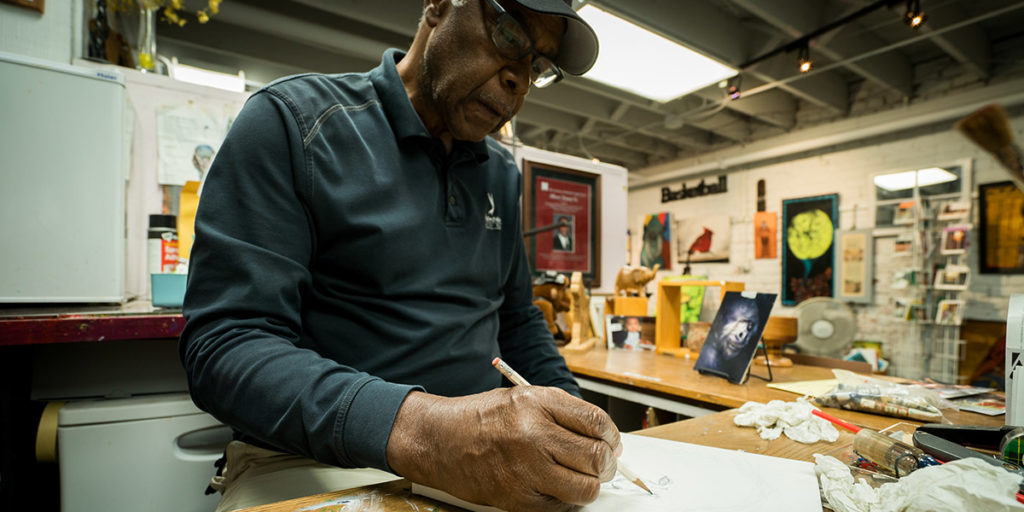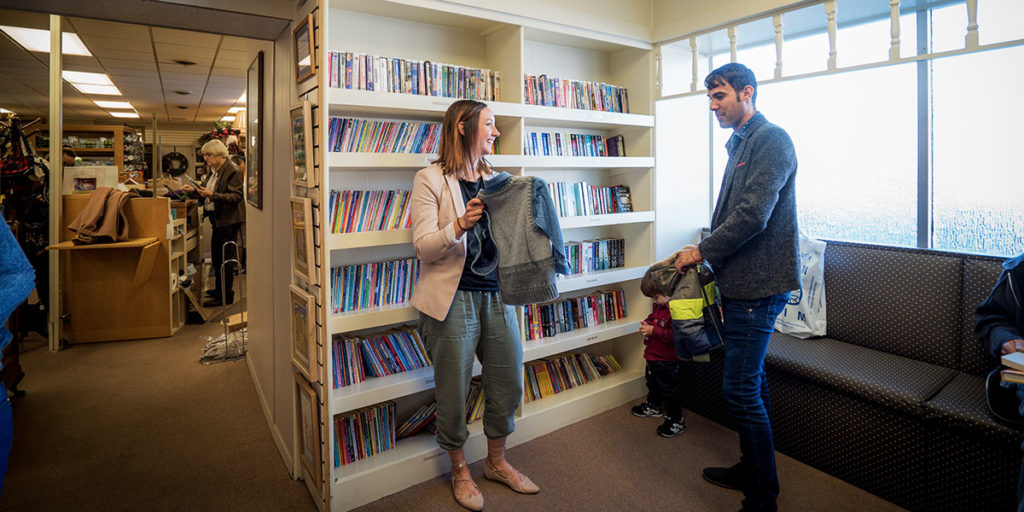
Albert Maxey is thinking about writing a book about his life, a memoir of sorts.
In it he’d talk about his childhood, basketball career, moving to Lincoln, his education, raising his family and being an artist. There’s a lot to include in a book like that, he said with a laugh, so for now he’s content with telling bits and pieces of his story as it comes up.
Albert said that while he was raised in Indianapolis, he “grew up” when he came to Lincoln in 1957.
“It was a very big transition to come here,” he said. “It’s like having a bowl of milk in front of you and you’re the fly that landed in that bowl of milk.”
The analogy might sound a little strange, but Albert said mostly he just felt out of place. He’d attended an all-black high school in Indiana and there were very few white families in his neighborhood. But he decided to come to Nebraska because of their reputation of strong academics, plus they’d offered him a basketball scholarship.
In high school, Albert’s basketball team was the first all-black team to ever win a state basketball championship – and they did this two years in a row. This got him and his teammates noticed by colleges across the country, and Albert received dozens of athletic scholarship offers during his senior year.
One of his offers was from Nebraska. Despite his early confidence in his decision to leave Indiana, the transition was difficult. There was a definite culture shock, his classes were challenging and it was hard to make new friends.
However, where Albert really excelled was on the basketball court. He played with other talented athletes and soon earned a reputation at UNL and in Lincoln for being a standout player.
After he played his final year of basketball, Albert focused his gaze on his degree in art and education. He’d grown up watching his mother sketch and knew that his passion and talent came from her. Albert had put art on the back burner while he played basketball, but now he was ready to dig in to art… or so he thought.
Albert soon realized that he needed a job to sustain him during school, so after scoping out his options, he started working at the Lincoln Police Department – mostly because it was within walking distance of his school and home.
At first, the job was just to off-set his bills, but he quickly progressed from a part-time employee to a beat cop, sergeant, criminal investigator, lieutenant and commanding officer. Albert was even part of the security team that guarded Rev. Martin Luther King Jr. when he came to Lincoln. Although working in law enforcement was vastly different than art, Albert said he really enjoyed getting to know his community.
He spent 34 years working for the police department before retiring. Albert again set his sights on using his degree and began to help Lincoln Public Schools adopt better security in their schools. He did this job for 14 years before officially retiring in 2008.
During his working years Albert got married, raised four children and became an active member of his community. Lincoln was slowly but surely becoming his home and he was proud to be a part of the city.
But Albert said he wasn’t the only one who was finding his place in Lincoln, his wife, JoAnn was carving out a place for herself as well. She was an amazing mother, Albert said, but she was also very ambitious when it came to caring for others.
She was appointed as a Nebraska state senator, becoming the first African American female to hold such an office. JoAnn was also the first black woman to serve on the Lincoln Board of Education.
Albert was incredibly proud of his wife and the way she cared for both their family and the community. She suddenly passed away from cancer when she was just 54, leaving a void in both Albert’s life as well as the city she loved so dearly.
There’s a senior center and an elementary school named after his wife, reminders of the person she was and the woman he married.
Life began to settle down for Albert after he retired. He was done with basketball, his kids were grown, his career goals had been met… but there was still his art.
These days Albert spends most of his time in his Haymarket art studio. He likes to sketch his designs with pencil before he starts in with the paint. His favorite thing to paint are portraits, he just loves the way faces tell stories.
He said even though art and his work in law enforcement were so different, being such a visual person helped him identify people when he was a police officer. He recognized different facial features, clothing and even body language, all of which are part of his art now.
Albert said he’s grateful he gets to spend his retirement in an art studio, he’s happy that this season is part of his story. He wasn’t also so sure that he’d get back to art, but today he has.
His story has been about pushing forward, despite the difficulties. It’s been about drive, he said, a drive he saw in himself, his wife, his children and one he hopes to witness in his grandchildren.
Maybe someday he’ll get around to writing down all the exact details of his story, but for now, he’s starting on his next painting.
